LETTERS
YOUR VOICE
We want to hear from you. Get in touch by email at profeng@thinkpublishing.co.uk or tweet us @ProfEng

STAR LETTER
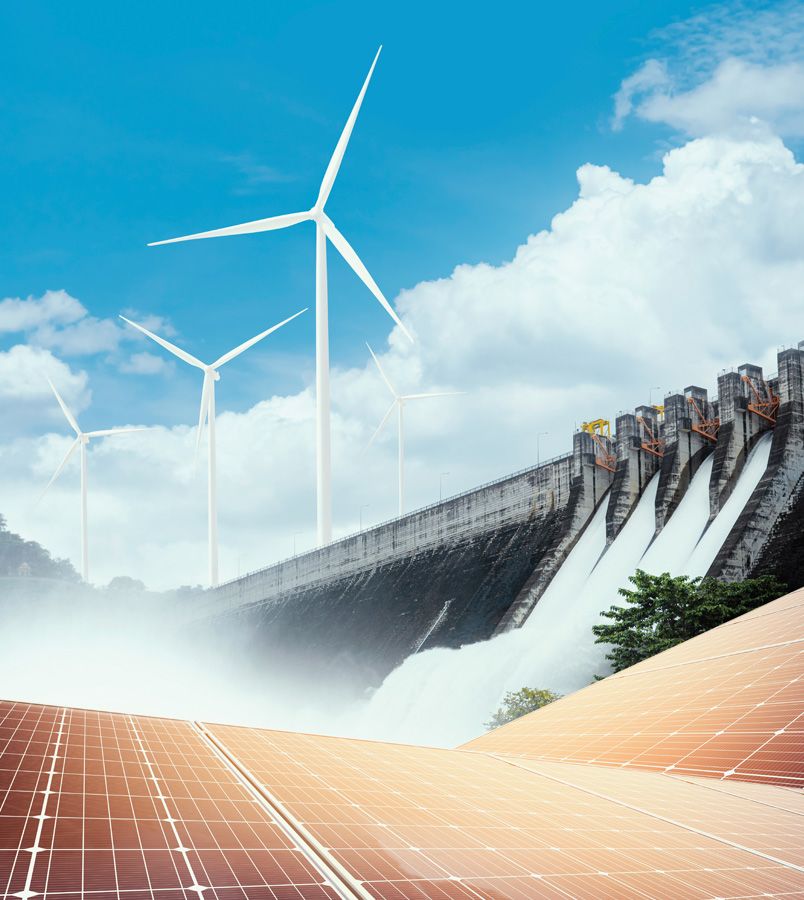
Where will all the electricity come from?
The letter on heat pumps listed some of their problems, but ignores the elephant in the room which is surely climate change (Your Voice, Professional Engineering No 3, 2023). If we cannot reduce our consumption of fossil fuels the whole future habitability of the planet is questionable. What is the industry and government doing about it?
The UK obtains 80% of its energy by burning fossil fuels. The generating industry and government keep quoting figures for how much of our electrical energy is generated from renewable energy, ignoring the significant energy for heating and transport, which is almost all from fossil fuels.
If we all switch to electric vehicles then that doubles the amount of electricity that we have to generate. If we all switch to heat pumps to heat our houses then this should reduce the amount of gas burnt, but it does increase hugely the amount of electrical energy required to run the heat pumps. Both are sensible moves but effectively will require an estimated fourfold increase in electrical energy.
Where is this energy to come from? A massive increase in electrical energy is required. Obtaining it from an electricity grid, where currently 31% of its electricity is generated by burning fossil fuel gas, is ridiculous, but seems to be the present plan.
Donald Dalton, Oxford

What went wrong with HS2?
The Prime Minister’s decision to cancel the HS2 leg to Manchester, and the reported mess the whole project has become, brings shame, or implied shame, upon our proud profession; one whose founders built our original railways.
I call on the IMechE president to join with the presidents of the Institution of Civil Engineers and the Institution of Engineering and Technology to convene a joint committee and determine from their members involved in HS2 why this project has failed so badly, thereby damaging our reputation worldwide.
We and the country need a truthful, unbiased report from the heart of the profession, warts and all, free from any government publicity spin.
Robert Barnes, Southsea, Hampshire
Let’s subsidise heat pumps
I feel the need to correct Robert Leckie’s assessment of the efficiency of heat pumps (Your Voice, Professional Engineering No 3, 2023).
The worst-performing air-source heat pumps in the lowest operating temperatures have a coefficient of performance of two. In real terms this translates as: for every kilowatt put into the system as electricity a further kilowatt is extracted from the air, giving an output of two kilowatts of heat. Electrical efficiency is included in this figure. Air-source heat-pump performance is dependent on ambient air temperature but with the right refrigerant most air-source heat pumps can achieve a COP of 3 even in a cold climate such as Glasgow!
The best electric combi boilers on the other hand have an efficiency equivalent to a COP of 0.99 (99% efficient). Running an electric boiler will therefore be twice as expensive and put twice as much strain on the electricity network.
I concede that a heat pump is and always will be more expensive to purchase. This is partly due to the greater complexity compared to an electric or even a gas boiler, but also due to lower production volumes, and prices will drop as more are made. There has also been 70 years of development in making gas boilers cheaply, while domestic heat pumps have only had 10-15 years of development.
It would be a much more effective use of public money to expand subsidies for the capital cost of heat pumps for a reward of lower running cost both for the end user and for the electricity network.
Cheap gas and electricity power plants would not help reduce the country’s carbon footprint, but shift the pollution from a domestic setting to an industrial, with an added inefficiency for generation and transmission losses. Carbon capture is not as efficient as not producing it in the first place.
I agree that more generating capacity than is currently available or even planned will be required in the very near future. Thanks to government procrastination we will need it far sooner than it could now be built in. Tidal may have its place, but the sea is a very cruel environment for any piece of engineering and the tides do not always fall at the point of peak demand for electricity. Like all variable sources, tidal must be combined with power storage so that it can then be made available when needed.
David E Hague, Portsmouth
Switch on to nuclear now
All UK governments over the last 15 years have adopted policies to reduce our CO2 emissions. Some of these have shown results, whilst others are just beginning. The gradual replacement of coal by natural gas has reduced emissions from the power sector but the effect has reached its limit.
Road transport is another significant contributor where electric vehicles are encouraged and subsidised, whilst new internal-combustion engine cars will be banned from 2035. EVs have no emissions on the road but are not emission-free. The electricity used to charge their batteries is produced by a range of generators with natural gas plants in use every day. The EU have calculated that, with the typical mixture of generation used in Europe, EVs will reduce emissions by about 20%. That is not an Earth-shattering improvement.
There is a similar move to replace gas central heating by heat pumps but again the electricity does not come only from low-carbon sources. In fact transferring the very large heat load to the high-voltage grid will necessitate more quick-response plants for the early-morning peak – almost certain to be combined-cycle gas turbines and even some open-circuit gas turbines.
The use of hydrogen for a range of applications is also not a panacea. It will require a huge number of extra power plants with extra transmission and distribution systems. There are then the electrolysers, plus the pressurising and transport systems and large storage facilities. The full process has many inefficiencies and it is very probable that the CO2 output per kWh will be very little different from using natural gas directly.
France and Sweden have had the lowest emissions for decades because they have maintained a large nuclear generating capacity. We are paying the price for having rejected that option.
Paul Spare, Davenham, Cheshire
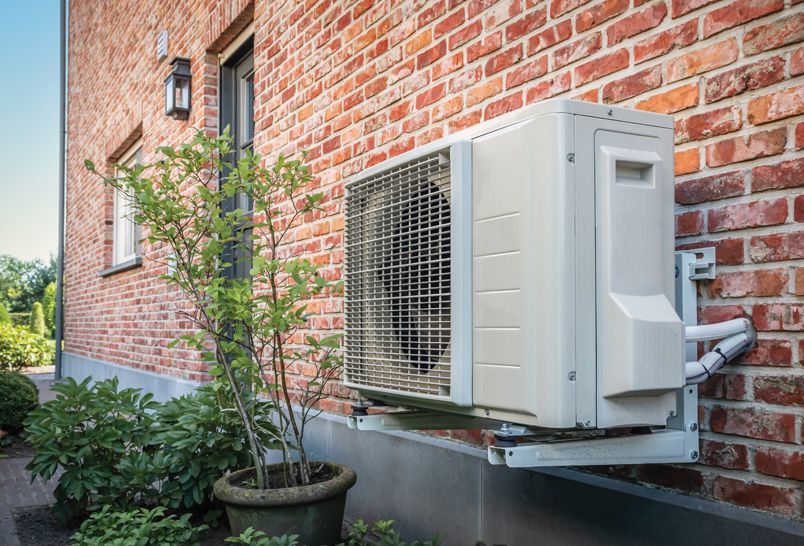
Give us the facts, please
We see differing alleged facts about the ease or difficulty of using heat pumps in place of gas boilers and similarly the difference in carbon emissions between the production of a new EV and keeping an existing combustion vehicle in use.
Isn’t it about time that there was a proper factual assessment of these two issues and who should be better placed to commission this than IMechE?
Roger Usherwood, Bristol
Combined centre of excellence
Some time ago there was a suggested move to create a closer co-operation between the various professional engineering institutions.
I myself have visited the headquarters of both the Civils and the Electricals as well as being familiar with the IMechE building in Birdcage Walk.
As part of the work being undertaken on the future of the IMechE HQ, has any consideration been given to creating a new HQ building as a combined centre of professional engineering?
This would increase the power of engineering in society and overcome the problems associated with maintaining individual older buildings.
With the clamour for additional living accommodation in cities such as London I cannot imagine that a developer would not snap up Birdcage Walk and convert it into multi-million-pound apartments.
Marcus Field-Rayner
You call this progress?
Perhaps we should pay attention to Daron Acemoglu, a well-respected economist at Massachusetts Institute of Technology, in his book Power and Progress (co-authored with Simon Johnson) that showcases a series of major inventions over the course of the past 1,000 years which, contrary to what we’ve been told, did nothing to improve, and sometimes even worsened, the lives of most people.
I believe that we need to carry out a careful risk/benefit analysis of artificial intelligence to ensure that it benefits the many and not the few.
James Love

Steaming back to the future
I was very taken by the item describing a home-made motorcycle dragster powered by a steam rocket motor (Weird Engineering, Professional Engineering No 3, 2023).
Whilst some might question the point of such an esoteric exercise, I would join those admiring the many skills needed to complete such a project (let alone drive the beast!).
By way of contrast, I hope you may like this photo of the 109-year-old Stanley steam car of Peter Turvey as it leaves the line at the annual Kop Hill charity hill-climb event held recently in Buckinghamshire. Whilst most steam cars can be quite brisk away from the start line, the Stanley wouldn’t have been approaching the 3.5G of the rocket, but it surely was a great deal quieter!
Don Sandom, Reading

Issue 3, 2023
Issue 3, 2023
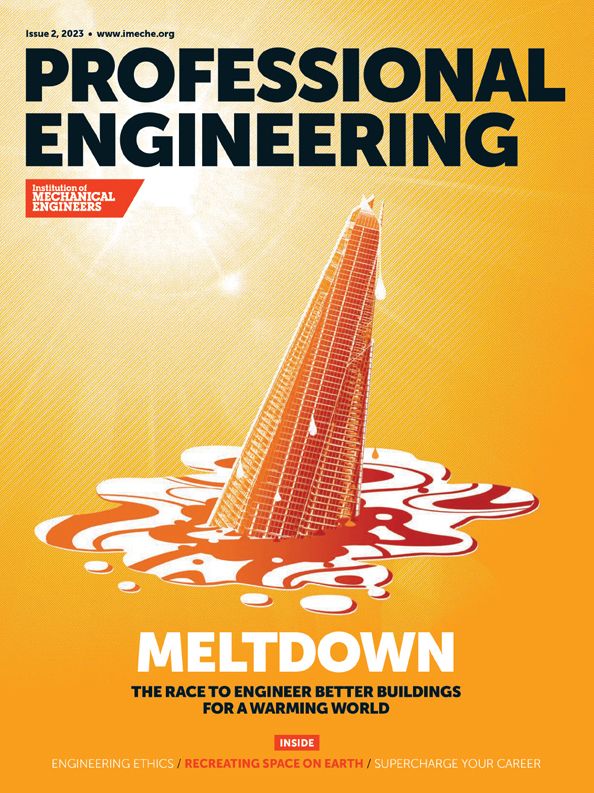
Issue 2, 2023
Issue 2, 2023
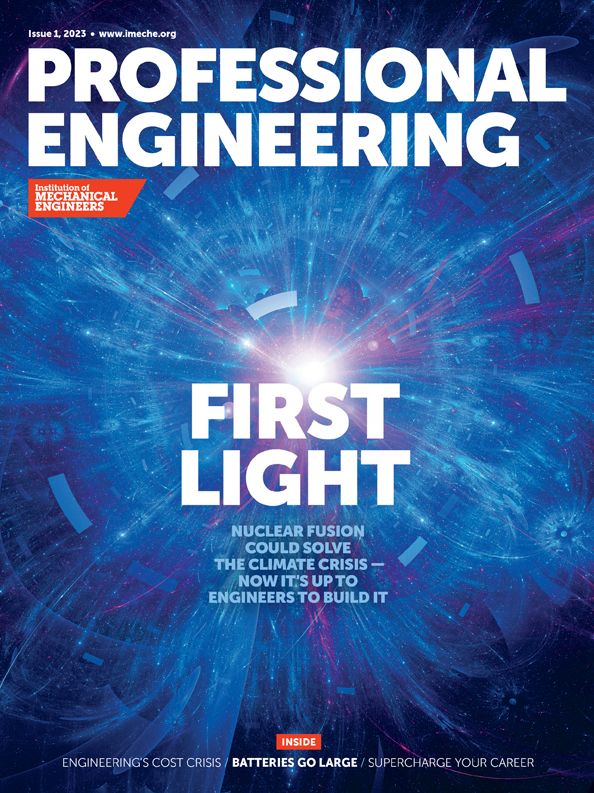
Issue 1, 2023
Issue 1, 2023
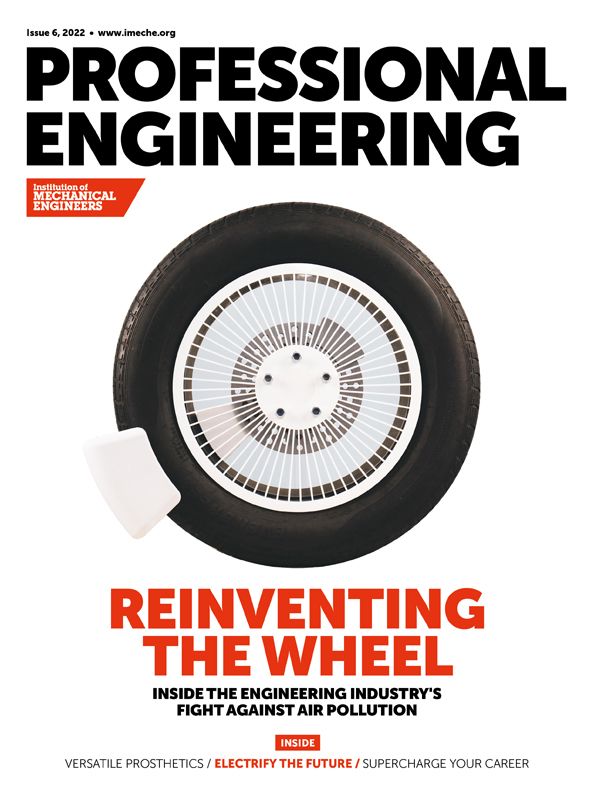
Issue 6, 2022
Issue 6, 2022
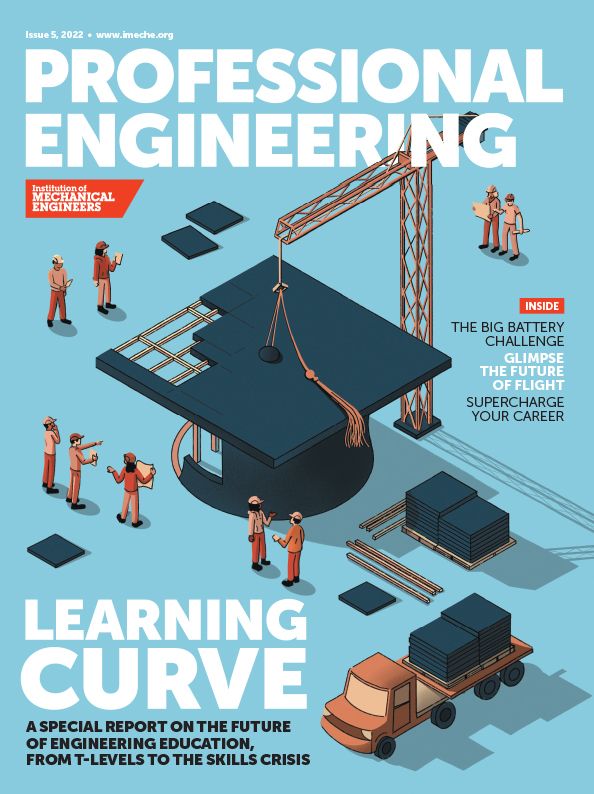
Issue 5, 2022
Issue 5, 2022
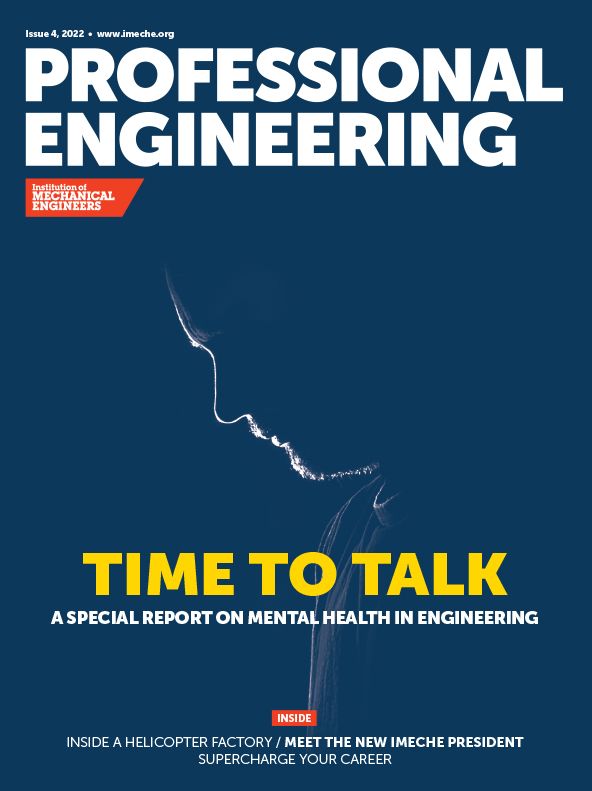
Issue 4, 2022
Issue 4, 2022
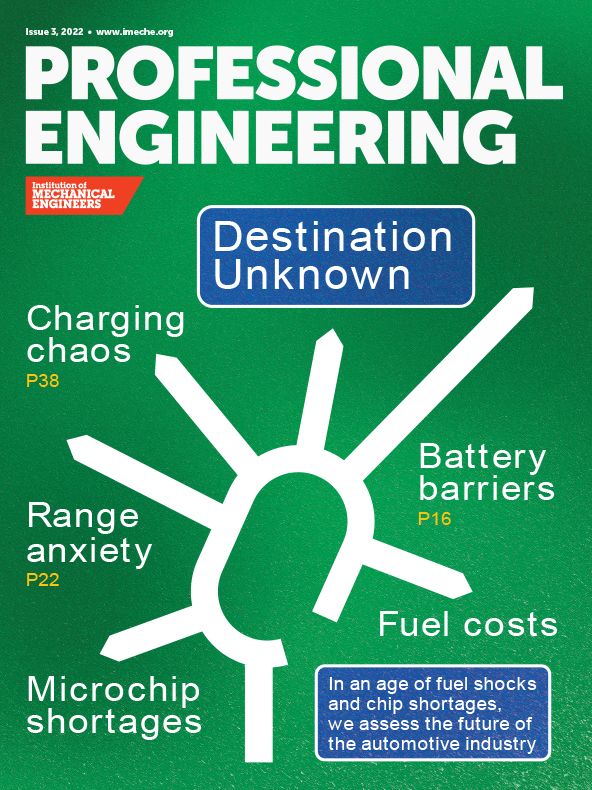
Issue 3, 2022
Issue 3, 2022
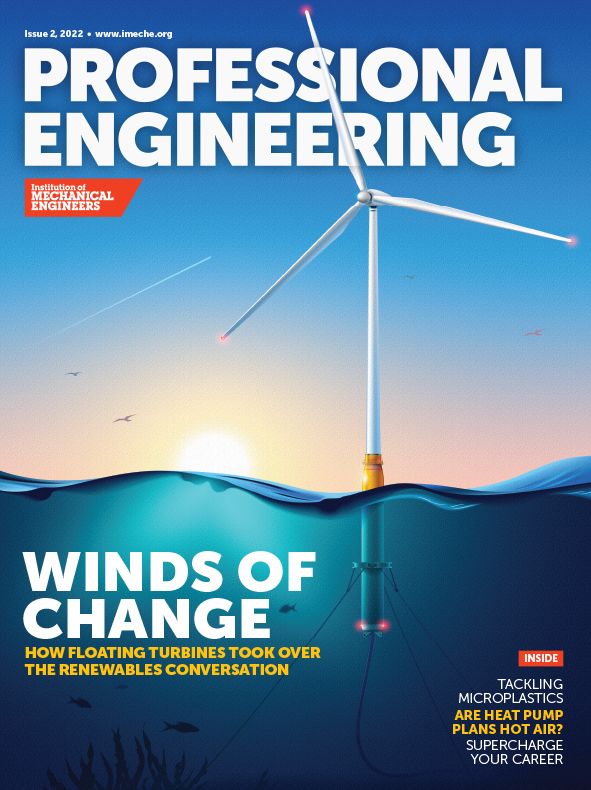
Issue 2, 2022
Issue 2, 2022
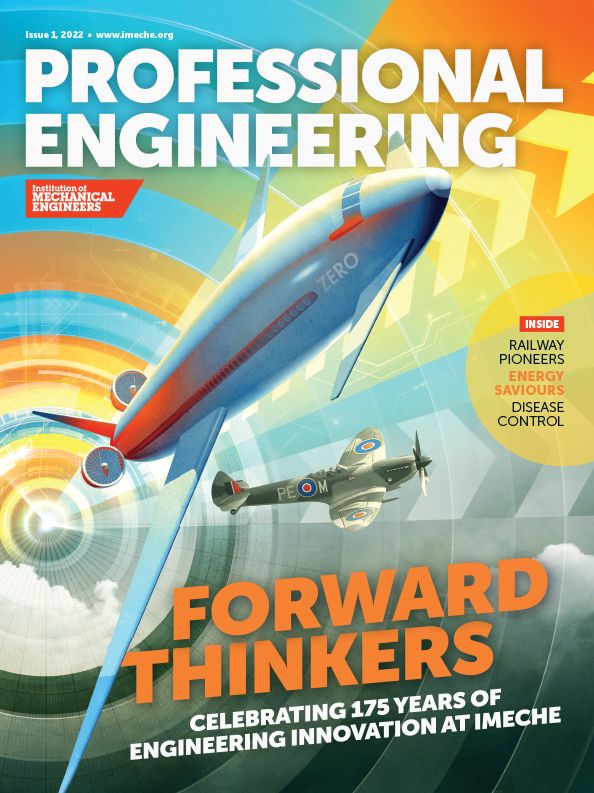
Issue 1, 2022
Issue 1, 2022
